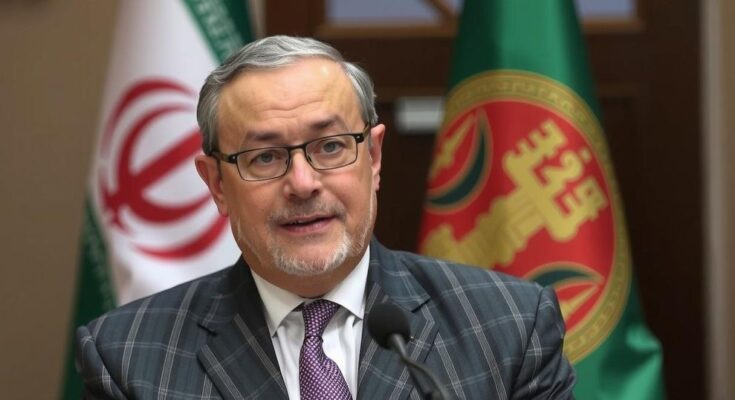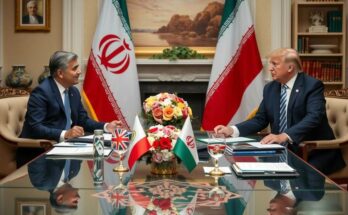Ahmed Al-Sharaa, Syria’s new leader, vowed not to interfere negatively in Lebanon during a significant meeting with Lebanese Druze leader Walid Jumblatt, marking an important shift in relations. Al-Sharaa criticized past involvements of the former regime and stressed the need for economic stability in Lebanon, while Jumblatt called for accountability for previous crimes. Additionally, matters regarding potential war crimes and current detainees were discussed in the context of shifting political dynamics in the region.
On Sunday in Damascus, Syria’s newly appointed leader, Ahmed Al-Sharaa, asserted his commitment to non-interference in Lebanon during a meeting with a Lebanese political delegation led by prominent Druze leader Walid Jumblatt. This historic visit is significant as it marks the first encounter between Lebanese leaders and Syrian representatives since the fall of Bashar Assad’s regime. Al-Sharaa acknowledged Syria’s past role as a source of instability in Lebanon, proclaiming a desire for a more balanced relationship moving forward.
In his remarks, Al-Sharaa stated, “Syria was a source of concern and disturbance for Lebanon, and its interference in Lebanese affairs was negative,” while urging the Lebanese to “erase from their memory the legacy of the old Syria in Lebanon.” He emphasized the importance of Lebanese economic stability and political equilibrium, affirming Syria’s support for these goals. This dialogue seems to signal a potential thawing in Lebanese-Syrian relations, which have been fraught with tension in previous years due to Syria’s controversial military and political interventions in Lebanon.
This new chapter also involves Hezbollah, which played a pivotal role in supporting the Assad regime. Al-Sharaa indicated a readiness to engage with all factions within Lebanon to foster stability. Jumblatt, in his speech, expressed solidarity with the Syrian people, calling for accountability for past atrocities, emphasizing the need for fair trials concerning crimes committed against both Lebanese and Syrian citizens.
Additionally, the Lebanese Public Prosecution revealed it had received a request from the American judiciary regarding the arrest of Maj. Gen. Jamil Al-Hassan, a key figure in Assad’s regime, accused of committing war crimes. This announcement underscores the ongoing complexities surrounding figures connected to the former regime and their current status in Lebanon, with reports suggesting some have fled to evade capture.
In a separate incident, it was reported that Col. Ahmed Khair Beyk of the Syrian army was kidnapped in Beirut, potentially related to drug trafficking activities. Furthermore, families of detainees associated with the Syrian opposition gathered in Beirut, advocating for general amnesty and speedy trials for the 350 individuals currently detained under accusations of terrorism. Lastly, Lebanese authorities reported the return of citizens abducted by Israeli forces, coinciding with claims of the discovery of Hezbollah’s military infrastructure by the Israeli military.
The relations between Lebanon and Syria have historically been characterized by a complicated and often hostile dynamic. Syria’s previous dominance over Lebanese politics, especially during the years of military presence from 1976 until 2005, left many Lebanese citizens wary of Syrian influence. Following the fall of the Assad regime, newly appointed Syrian officials are seeking to reshape these relations, promoting a narrative of non-interference and mutual economic support. This shift reflects an acknowledgment of the past while attempting to build a more cooperative future, amidst lingering suspicions and geopolitical challenges in the region.
The recent meeting between Syrian leader Ahmed Al-Sharaa and Lebanese Druze leader Walid Jumblatt signifies a potential pivot in Lebanese-Syrian relations towards a more cooperative and balanced partnership. Al-Sharaa’s commitment to refrain from negative interference in Lebanese affairs reflects a recognition of Syria’s troubled past and an aspiration for political stability and economic support in Lebanon. The complexities of this engagement, particularly concerning issues of past crimes and ongoing conflicts, highlight the intricate nature of regional politics in a tumultuous area.
Original Source: www.arabnews.com




